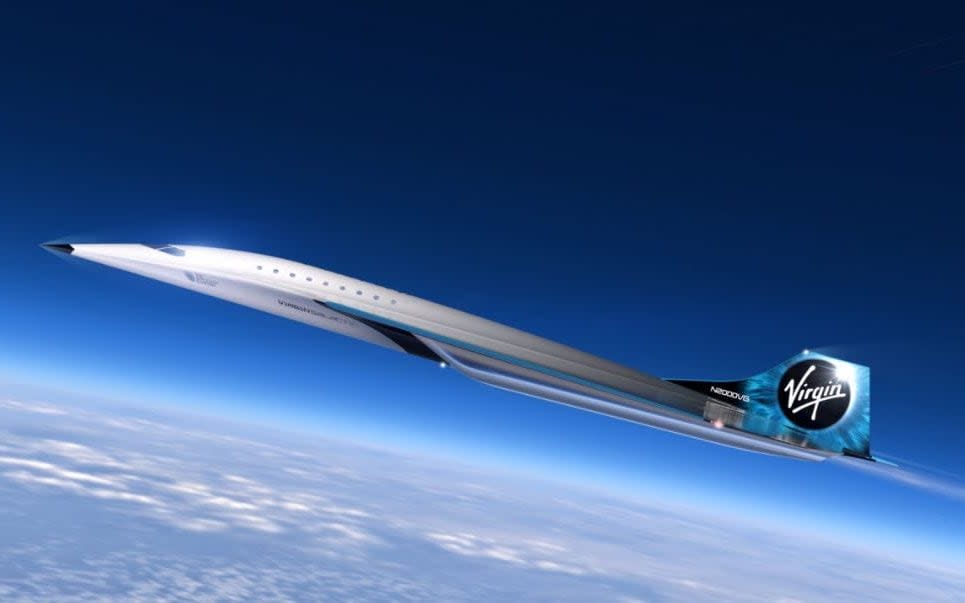Virgin Galactic and Rolls-Royce join forces for 'son of Concorde'

Virgin Galactic has signed up Rolls-Royce to design engines for a supersonic private jet the company hopes to build.
If successful, the company will bring air travel faster than the speed of sound back to the civilian world after it was lost with the retirement of Concorde in 2003.
The company founded by Sir Richard Branson is investigating designs for a small jet that can fly at Mach 3 - some 2,000mph - at altitudes of about 60,000ft.
Like Concorde, which Rolls also developed the engines for, the aircraft will have a delta wing design but capable of accommodating a maximum of 19 people.
It came as the space travel company announced it was raising $460m (£351m) in a sale of shares of common stock for general corporate purposes, including working capital, general and administrative matters and capital expenditures.
The company delivered an adjusted earnings before interest, tax, depreciation and amortisation (ebitda) loss of $54m for the second quarter, in line with the losses of $53m and $55m in the previous two quarters.
At the end of the second quarter it had about $360m of cash on hand.
Virgin Galactic has received backing from US aviation regulators to work out early certification parameters around the new Rolls aircraft, which is a step away from the company’s space business.
Having such a famous name as Rolls on board is a boost for the project, giving hope that it will progress beyond the drawing board.
Unveiling initial design concepts, George Whitesides, Virgin Galactic’s chief space officer, said if the jet goes into service it would “blend safe and reliable commercial travel with an unrivalled customer experience”.
Tom Bell, Rolls-Royce North America chairman, added: “Rolls-Royce brings a unique history in high speed propulsion, going back to the Concorde, and offers world-class technical capabilities to develop and field the advanced propulsion systems needed to power commercially available high-Mach travel.”
Partnering with Virgin Galactic is a rare piece of positive news for Rolls. Coronavirus has caused a collapse in air travel, causing demand for its civil aircraft engines to crater.
Rolls is laying off 9,000 people worldwide - about 15pc of its workforce - and is looking to raise capital through disposals and a potential rights issue.
Shares in Rolls have plunged to levels not seen since 2004 and on Monday fell more than 11pc to lows of 212p, valuing the business at just £4.2bn.
A year ago, Rolls shares were trading at 800p as chief executive Warren East’s turnaround plan was slowly taking hold.
The memorandum of understanding between Rolls and Virgin Galactic is not the only supersonic civilian aircraft project the British engineer is working on.
Last week, Rolls announced it was working with US-based Boom, to see if its existing engine designs can be adapted for use in the start-up’s supersonic business jet designs.
Boom is more advanced than Virgin Galactic, having already begun construction of a prototype of its supersonic jet.


